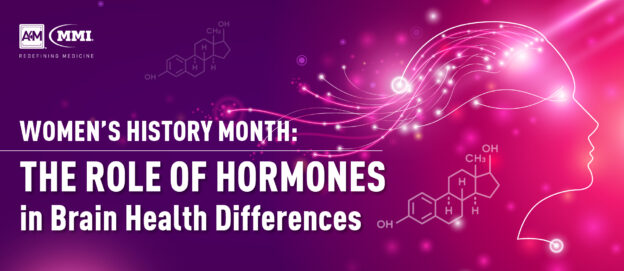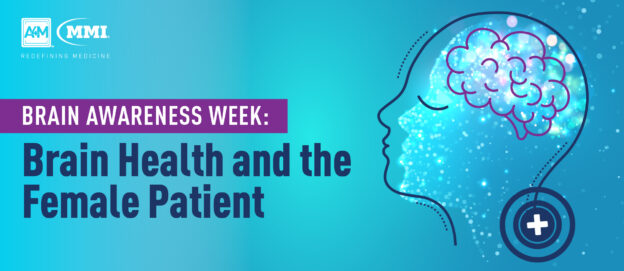Taking place between March 15-21, 2021, Brain Awareness Week is a global campaign aimed at promoting brain science and research while working to further public awareness of brain health. As a field of medicine, brain health belongs at the forefront of patient health, especially in the case of women as it is considered a vital marker of female health. However, the female brain has been largely overlooked in research efforts and by the scientific community in the past spotlighting a pressing need for increased consideration of the aspect as a facet of overall health.
Currently, it is estimated that 3.3 million women aged 65 and above have Alzheimer’s disease (AD) in the United States – comprising approximately 67% of the AD patient population comprising approximately 67% of AD patients. Overall, women face an increased risk of developing AD due to hormonal shifts that occur during menopause which can increase the risk of neurological changes. Furthermore, women above the age of 60 are twice as likely to develop Alzheimer’s disease over the course of the rest of their lives as they are to develop breast cancer yet the condition is not widely recognized as a women’s health issue. As current and emerging clinical data indicate, the disproportionate prevalence of neurodegenerative diseases in female patients necessitates more comprehensive medical intervention and the development of targeted prevention initiatives.
The Female Brain and Alzheimer’s Disease
According to recent research from investigators at Weill Cornell Medicine women in mid-life have approximately 30% more Alzheimer’s-related plaques than men of the same age. As part of their study, researchers evaluated 121 middle-aged participants without AD symptoms and with the presence of some risk factors such as genetic risk or a family history of disease. They discovered that women also had a 22% lower brain glucose metabolism indicative of lower energy levels in the brain, as well as 11% more brain shrinkage. Both of these neurological biomarkers were associated with menopause.
Noting the significantly increased brain changes associated with AD in female participants, the team of researchers set out to identify relevant risk factors, including age, education, cholesterol levels, smoking status, dietary habits, exercise levels, diabetes, menopause, hormonal therapy, and hysterectomy among others. They found that menopause was the primary predictor of Alzheimer’s disease-related changes in women’s brains and while hormonal therapy was also associated with the condition, women undergoing treatment exhibited fewer negative brain changes.
Although additional research in this field is necessary, the latest findings point to the need to address Alzheimer’s disease-related risks in female patients at an earlier age and with more strategic interventions. Further study is needed to determine what types and doses of hormonal therapeutics may prove beneficial for brain function while also minimizing the potential for adverse health effects.
Menopause, Hormonal Risk Factors, and Neurological Health
Although menopause is not often associated with the brain, approximately 80% of women going through menopause experience at least some neurological symptoms ranging from insomnia and memory loss to depression and anxiety. Left unaddressed, these changes may escalate to serious neurological conditions.
Despite being the only neurodegenerative condition that affects more women than men, Alzheimer’s disease in the female patient remains under-recognized. Gaps in knowledge and scientific literature highlight the need to explore the specific factors that contribute to women’s increased vulnerability to a number of conditions that negatively impact overall brain health. A growing understanding of the varying reasons underlying cognitive changes in both women and men as well as the sex differences in neurological aging and function will likely change the way AD and other neurodegenerative conditions are treated.
Due to advances in research, there are newly discovered opportunities to identify, address, and act upon telling risk factors before clinical symptoms of neurological conditions emerge. Doing so will require comprehensive training and medical education for physicians, enhanced public awareness, and strategic prevention initiatives. Compelling evidence exists revealing the significant benefit of specific medical and lifestyle practices on female brain health; lifestyle interventions can be both safer and better tolerated than traditional pharmacologic approaches while also being just as effective. Most importantly, prevention and treatment protocols should be tailored to each patient’s unique risk profile and needs and incorporate brain health as part of a holistic view of patient care.


